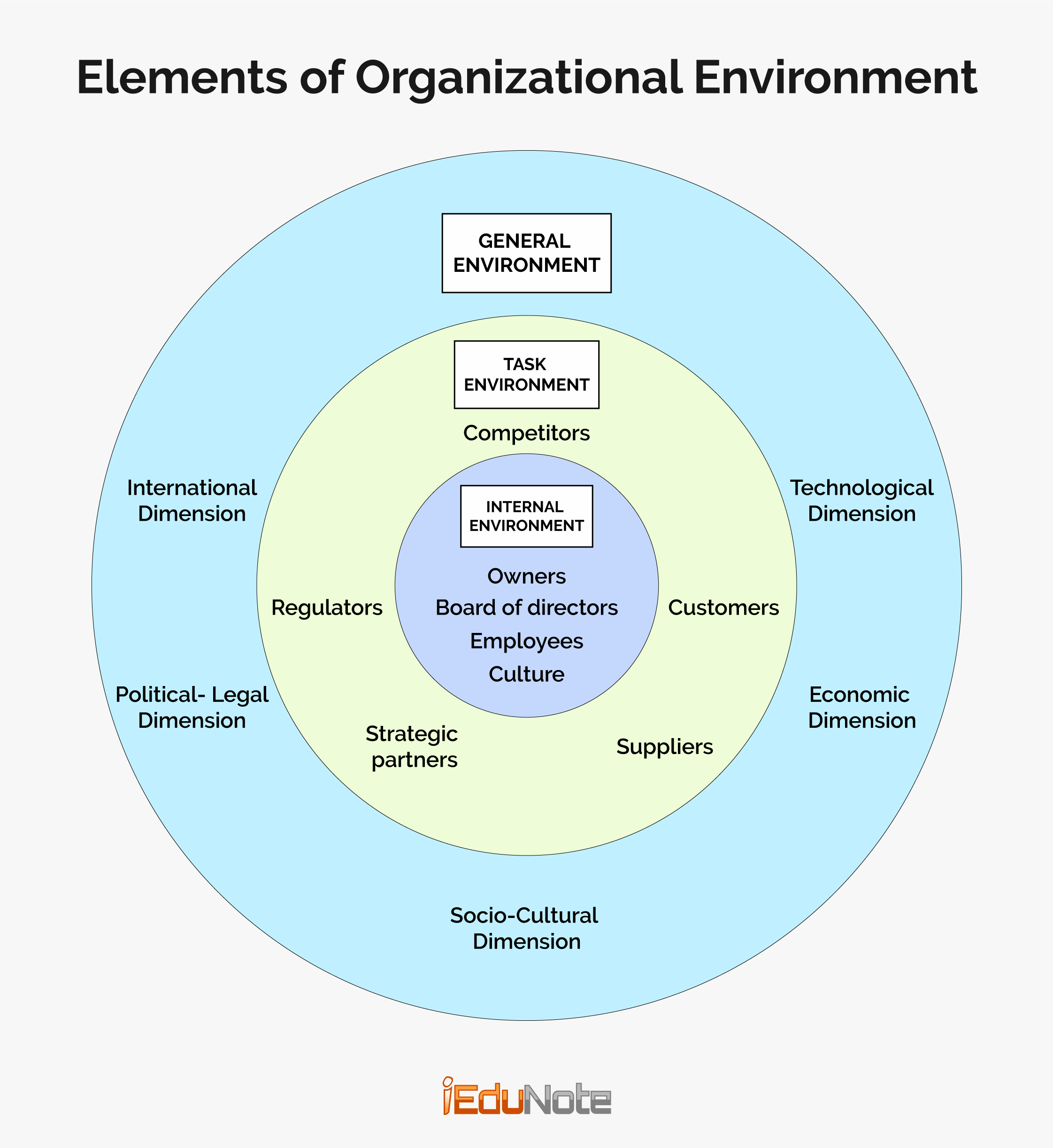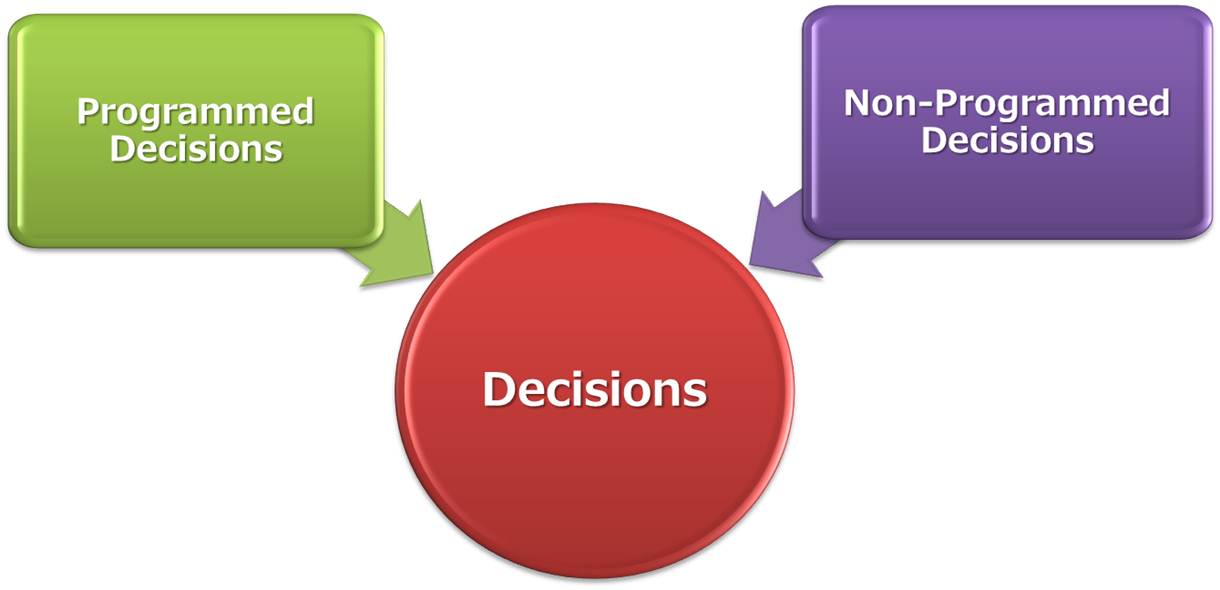Managers and leaders differ in how they create an agenda to develop a rationale for achieving the agenda and execute plans and in the types of outcomes they achieve. A manager must have the qualities of leadership to fulfill the organization’s goals.
A manager manages all an organization’s work to fulfill that organization’s goals. It is necessary for a manager also to have the quality of leads. Otherwise, he cannot lead his subordinates.
Good management aims to provide services to the community in an appropriate, efficient, equitable, and sustainable manner.
This can only be achieved if key resources for service provision, including human resources, finances, hardware, and process aspects of care delivery, are brought together at the point of service delivery and are carefully synchronized.
Critical management considerations for assessment and planning, managing the care process, human resources, interacting with the community, and managing information are covered in the Planning, Human Resources, Integration, and Monitoring chapters.
A manager’s responsibility is to bring about, accomplish, and have charge of or responsibility for and conduct.
Mainly we can say that a manager manages all the works of an organization to fulfill the goals of that organization. The leader also needs to lead his subordinates on the right path. He needs to bear both qualities, which are managing and leading.
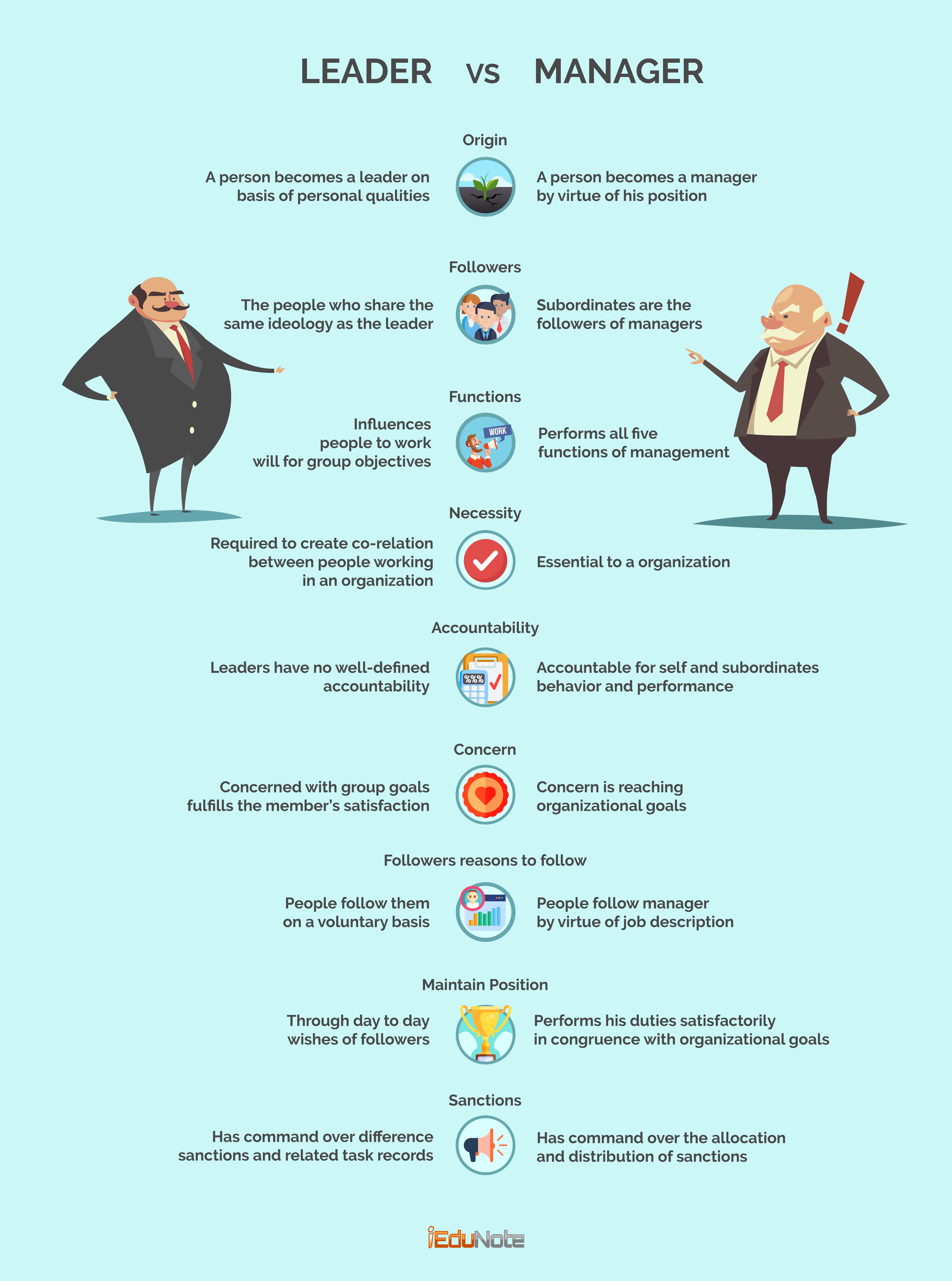
On the other hand leading is influencing, and guiding in a direction, course, action, or opinion. A leader can only show the subordinates but cannot manage everything to accomplish the goals.
His responsibility is only to give his subordinates guidelines and motivate them to do the work properly but not manage.
Though there is a relationship between a manager and a leader, it is necessary for a manager also to have quality leads.
Otherwise, he cannot lead his subordinates.
But a leader doesn’t need to manage the whole work; he only needs to influence the subordinates as the manager’s direction.
The leader only leads his subordinates, but a manager needs to manage everything and lead them. The answer lies in the quote itself.
When you talk about ‘Manager,’ we are essentially talking about the ‘Role of managing’ things for himself (be it his project, job, function, etc.)
But the ‘Leaders’ are those who ‘make others manage’ things. There is a clear distinction between these two roles.
Therefore a good leader is always a good manager, but a good manager may not be the same as always.
But there are clear distinctions between these two roles;
- The manager drives the person, and the leader coaches them;
- The manager knows how it is done, and the leader shows how;
- The manager is concerned with things; the leader is concerned with people;
- The leader commands respect where a manager demands respect;
- The manager takes the credit, and the leader gives it.
There is a profound difference between management and leadership, and both are important. The distinction is crucial.
However, ‘A manager is a leader, but a leader may not always be a manager. We can realize that when we understand and discuss the differences between the manager and leader.
Leaders are Born, but Managers are Made
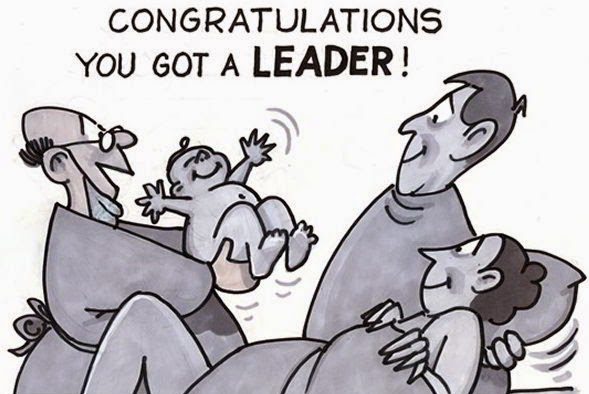
Leaders are Born, but Managers are Made. Leaders have an intangible characteristic that can’t be explained, but the manager can train his or her skill by training.
Leaders have qualities that distinguish them from a manager. Managers are creative and stewards of functional tasks.
A manager is an individual responsible for overseeing’ resources and processes.’
In most instances, managers are more creative than supervisors, but they are also stewards of functional tasks. Their sole duty is to manage.
Manage budgets, people, major tasks and projects, and time.
All of tesethese are functional tasks, which we are accustomed to performing daily in our personal lives.
A leader is a person who rules, or guides or inspires others.’ A leader is someone others are willing to follow, almost without question.
They may not always make the right decision, but they are confident in their decisions. They are not afraid to admit when they are wrong and know when to change direction when an inappropriate choice has been made.
For, even after a few mistakes, a true leader will not lose the confidence of his, or her, followers.
People seek out leaders unconsciously, and leaders step to the forefront almost instinctively. Leaders are recognized, not chosen.
Leaders have some extra qualities that distinguish them leader from the manager.
The leaders are the origin of the idea, and their task is conceptual.
The qualities of a leader are given below:
- Leaders can influence people easily.
- Leaders can motivate his or her followers very well.
- Leaders are free and frank with his or her subordinates.
- The self-confidence power of the leader is very high.
- Leaders are very cooperative with his or her followers.
- Leaders are good decision-makers for his or her organization.
Comparison between the characteristics of leader and manager:
- Leaders are the main developers of an idea, but managers are the maintainer of that idea that can make the vision come true.
- Leaders work with their followers but managers focus on the organization’s system and structure.
- Leaders do the conceptual activities of the organization but managers implement that concept.
- Leaders can read their followers’ minds very deeply, but managers stand at a large distance from their subordinates that why they cannot read their subordinates’ minds as leaders.
A saying goes like this “Talent can do effortlessly what is difficult for the normal person, and genius can do effortlessly what is difficult for talent.” The issue is more of aligning in an area where the strength lies or even knowing where exactly we can excel.
The issue is more of aligning in an area where the strength lies or even knowing where exactly we can excel.
The person who has found his vocation in life is a blessed human being. Let him ask for no other blessedness. There are three things extremely hard: steel, a diamond and knowing oneself.
So we can understand that managers are developing his or her skill by training, but leaders have some extra qualities which he or she gains naturally
Leaders and managers are different; a leader may be a manager, but a manager must have leadership qualities.
From the above discussion, we are ensuring that leaders have something within that the others don’t have.
It is an intangible characteristic that can’t be explained, but when we see it, we will recognize it. On the other hand, a manager can train his or her skills through training.
So it is sure that leaders are born, but managers are made.
Difference between Leadership and Management
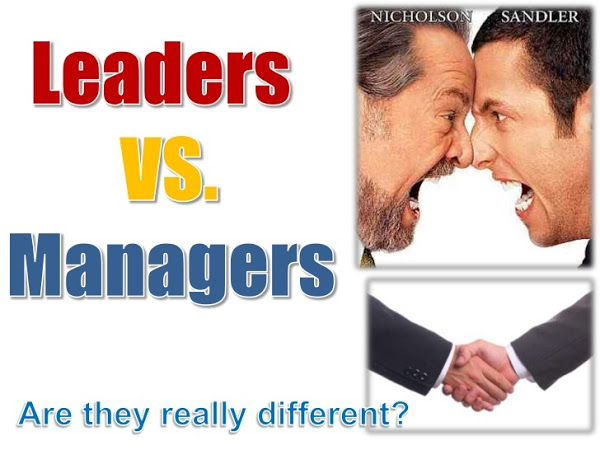
Leadership and management are not the same.
They are two different things.
Leaders conquer the context, and the manager surrender to it.
A manager administers, copies maintains, focuses on system and structure, relies on control, has a short-range view, asks how and when, has an eye on the bottom line, imitates, accepts the status quo, and is like a classic good soldier, and does things right.
In the country, a leader innovates, is original, develops, focuses on people, inspires trust, has a long-range perspective, asks what and why has an eye on the horizon, originates, challenges the status quo, and is an individual who does the right thing.
So it can be said that a manager is necessarily a leader, but a leader may not be a manager.
Let’s look at the difference between a leader and a manager;
| Basis | Manager | Leader |
| Origin | A person becomes a manager by his position. | A person becomes a leader based on personal qualities. |
| Formal rights | The manager has got formal rights in an organization because of his status. | Rights are not available to a leader. |
| Followers | The subordinates are the followers of managers. | The people who share the same ideology as the leader. |
| Functions | A manager performs all five functions of management. | A leader influences people to work well for group objectives. |
| Necessity | A manager is essential to a concern. | A leader is required to create co-relation between people working in an organization. |
| Stability | It is more stable. | Leadership is temporary. |
| Mutual relationship | All managers are leaders. | All leaders are not managers. |
| Accountability | The manager is accountable for self and subordinates’ behavior and performance. | Leaders have no well-defined accountability. |
| Concern | A manager’s concern is reaching organizational goals. | A leader’s concern is group goals fulfill the member’s satisfaction. |
| Followers’ reasons to follow | People follow the manager by job description. | People follow them voluntarily. |
| Role continuation | A manager can continue in office till he 1 performs his duties satisfactorily in congruence with organizational goals. | A leader can maintain his position through the day-to-day wishes of followers. |
| Sanctions | The manager has command over the allocation and distribution of sanctions. | A leader has command over different sanctions and related task records. The sanctions are essential for their informal nature. |
Leaders and managers are related, but they are not the same.
A person can be a manager; a person is not a leader or neither. A manager monitors results, compares them with goals, and corrects deviations.
But the leader focuses on stimulating people to overcome bureaucratic hurdles to help reach goals.
Managers and leaders differ in how they create a plan to develop a rationale for achieving the agenda and executing plans and in the types of outcomes they achieve.
Although leaders and managers are related, there is some distinction between leaders and managers.
The overall success of any organization depends on the efforts of both leader and the manager.
A leader, in conjunction with a manager, can produce orderly changes and can keep the organization aligned adequately with its environment.
So the difference between manager and leader;
- The manager administers; the leader innovates.
- The manager is a copy; the leader is an original.
- The manager maintains; the leader develops.
- The manager accepts reality; the leader investigates it.
- The manager focuses on systems and structure; the leader focuses on people.
- The manager relies on control; the leader inspires trust.
- The manager has a short-range view; the leader has a long-range perspective.
- The manager asks how and when; the leader asks what and why.
- The manager always has his or her eye on the bottom line; the leader has his or her eye on the horizon.
- The manager imitates; the leader originates.
- The manager accepts the status quo; the leader challenge sits.
- The manager is the classic good soldier; the leader is his or her person.
- The manager does things right; the leader does the right thing.
We can say, ‘A manager is a leader, but a leader may not always be a manager.
This comment is true because a leader is a developer and original characteristics of an organization. He maintains all of the organization. So he may not be a manager.
